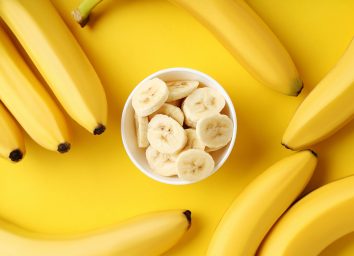Major Effects Bananas Have on Your Health, Says Dietitian
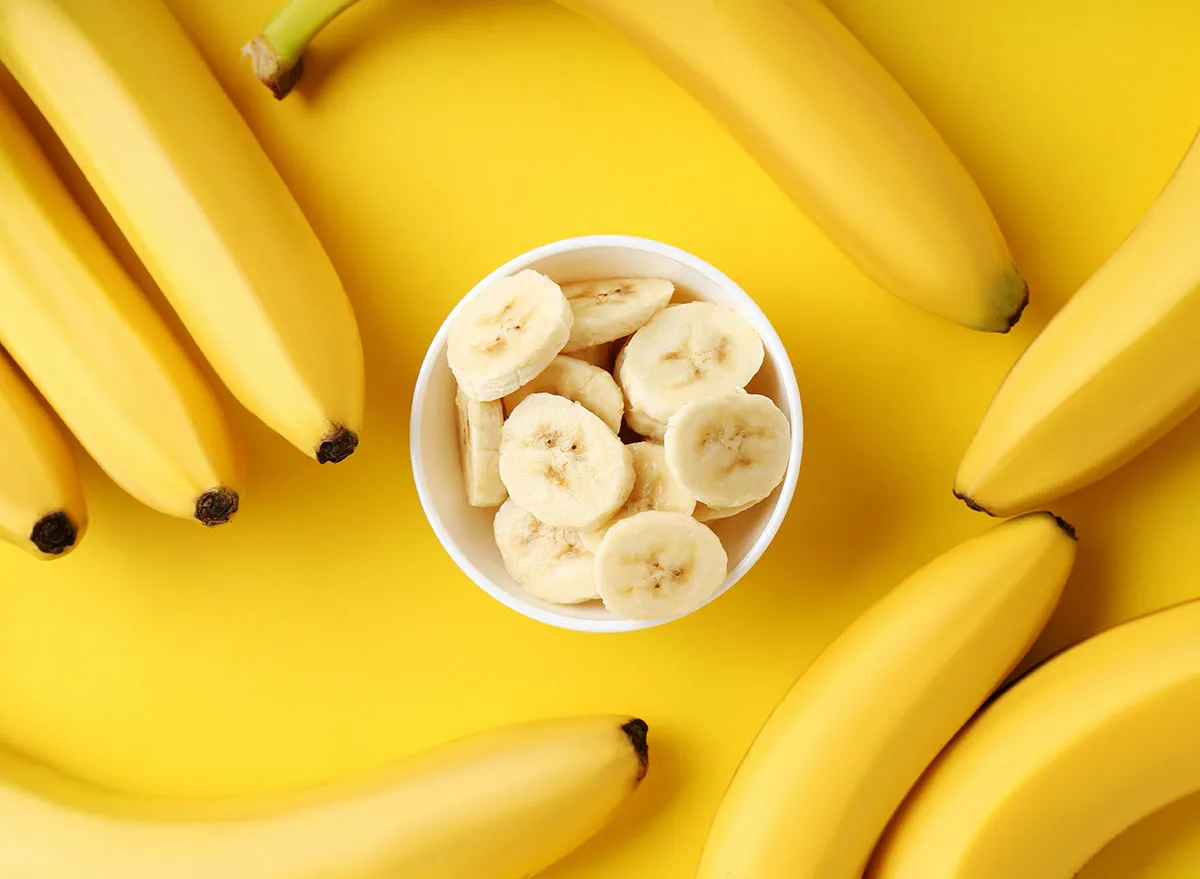
Bananas are the most popular fresh fruit in the United States and globally. Recent USDA data shows that we eat, on average, more than 13 pounds of bananas per person per year. That's good news since the world's largest herbaceous plant provides numerous surprising health benefits.
Here are some banana basics that reveal what's under the peel and how that affects your health. Read on, and for more on how to eat healthy, don't miss Secret Side Effects of Eating Oranges, Says Science.
Bananas are nutrient-rich.
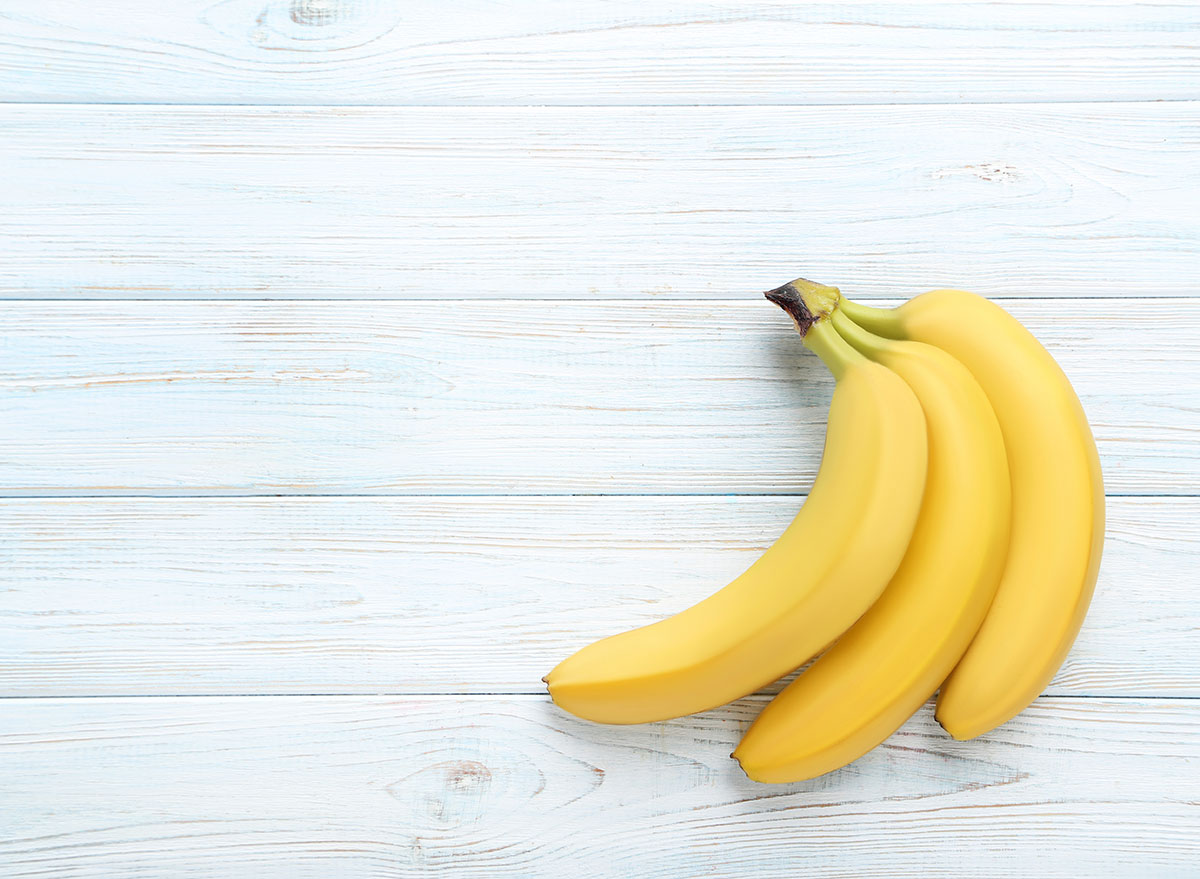
While berries and citrus are often singled out as nutritional all-stars, a look under the peel of a medium-sized banana (7" to 8" long) reveals 110 calories, 30 grams of carbs, and 3 grams of filling fiber.
Bananas are an excellent source of vitamin B6 with 25% of your daily recommended intake. They also provide around 10% of your daily recommendations for potassium, vitamin C, and manganese.
Bananas are naturally fat-, cholesterol-, and sodium-free making them a smart addition to any diet along with other healthy foods.
Bananas also contain many bioactive compounds, according to research published in Food Quality and Safety, including carotenoids and flavonoids, that are known to have myriad benefits—from helping to maintain eyesight to reducing risk for heart disease and certain types of cancer.
Bananas are diet-friendly.
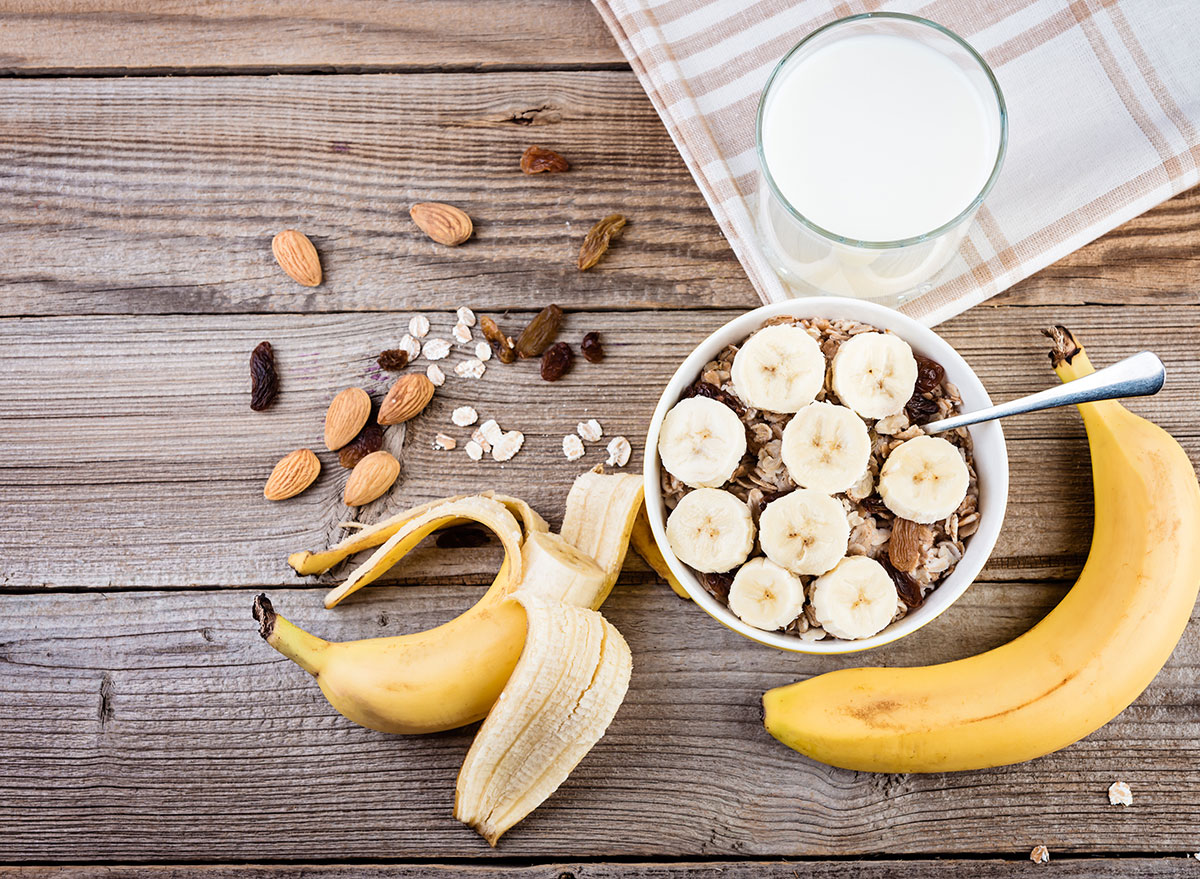
A medium banana is 110 calories and provides 30 grams of carbs and 3 grams of fiber. The fiber in bananas helps slow down digestion to help keep hunger and cravings in check. In addition to filling fiber, bananas contain resistant starch, a type of carbohydrate that provides digestive health benefits and helps to keep you fuller longer. (The greener the banana, the more resistant starch it contains.) Numerous studies have reported that resistant starch helps improve blood glucose, increases hormones that enhance satiety, and reduces the risk for chronic diseases.
What's more, according to a study performed at the Smell and Taste Treatment and Research Foundation in Chicago, smelling certain foods when you are hungry can trick your brain into thinking that you've eaten and are satisfied. One of those foods is bananas. If that's not enough to convince you that you can enjoy bananas while losing weight, smell one next time you're hungry and it just may tamp down your appetite.
Bananas temper blood pressure.

As an excellent source of potassium, a medium banana has 422 milligrams of potassium while being sodium-free. According to the American Heart Association, eating foods rich in potassium, like bananas, can help manage blood pressure. The high potassium to sodium ratio helps to neutralize the blood-pressure-raising effects of sodium in your diet. Various studies show that those who have diets rich in potassium are less likely to have high blood pressure and have a reduced risk for stroke. Adults need 4,700 milligrams of potassium a day, so a medium banana provides nearly 10% of the daily requirement.
Bananas have antimicrobial and antiviral properties.
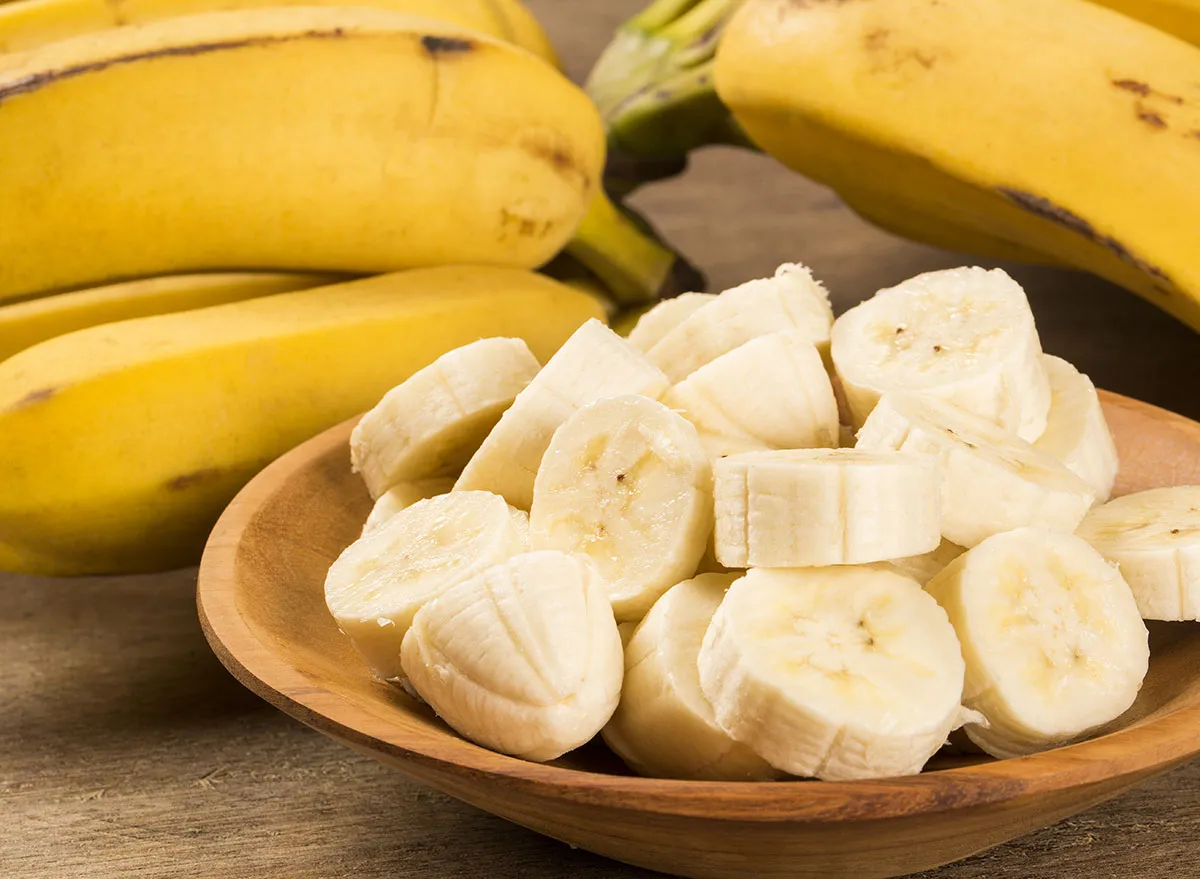
The internet is full of misinformation about how bananas may help protect against Covid-19, but while there is no evidence that is true, bananas do contain specific proteins that have antimicorbial and antiviral properties. Many bioactive compounds in bananas, like ferulic acid, lupeol, and leptin, have been identified as antimicrobial activities of parts of the banana plant.
Bananas have been used in ancient medicine to treat infections, from diarrhea to viruses like chickenpox and measles. What's more, bananas are a good source of vitamin B6, which helps maintain a healthy immune system. Taken together, a banana a day is a healthy option to bolster your immune system.
They may improve your mood.
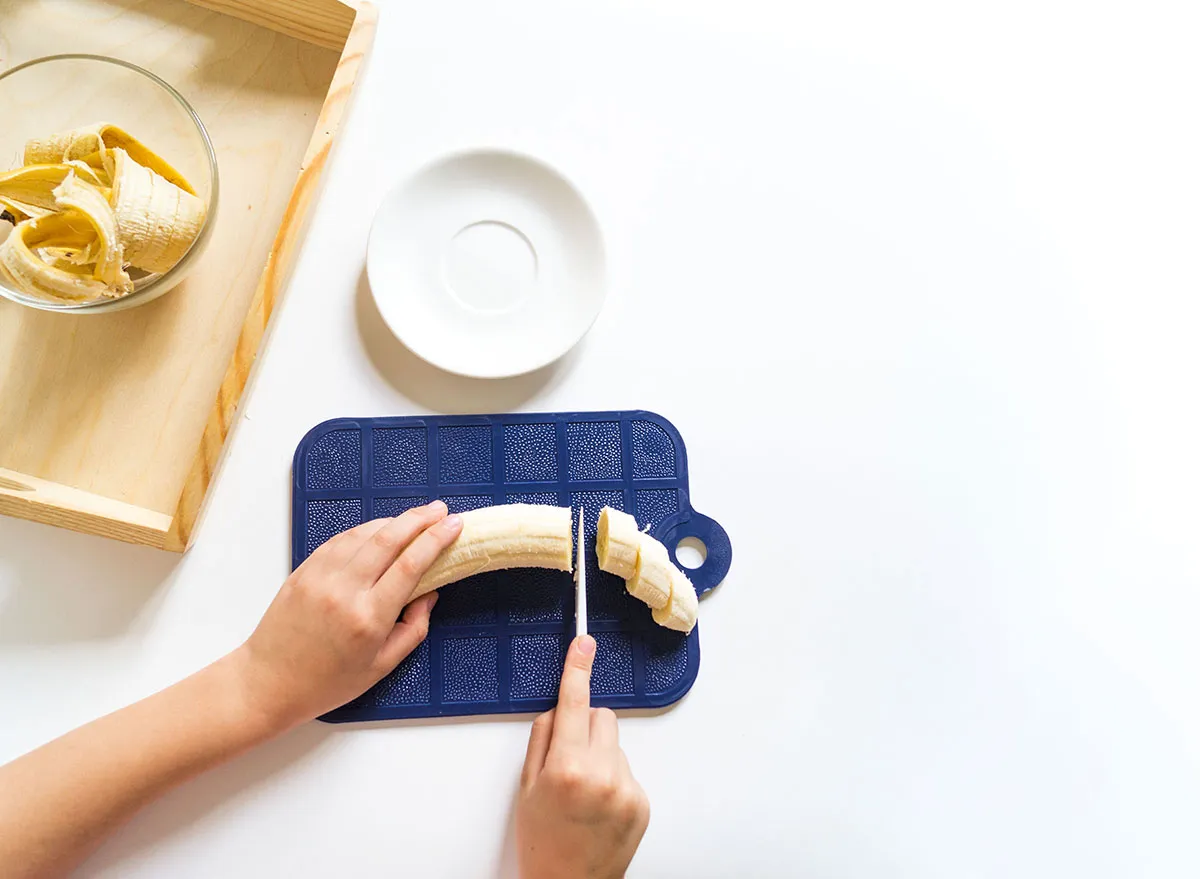
Bananas provide nutrients that may lift your mood. The vitamin B6 they provide helps increase the feel-good neurotransmitters serotonin and dopamine. What's more, other studies show that bananas are one of the few foods that provide the precursor to tryptophan, which increases serotonin in the brain. A study published in Psychotherapy and Psychosomatics linked low blood levels of vitamin B6 to an increased risk for depression. Since many of us don't get enough vitamin B6 in our diets, eating the tropical fruit daily may help turn your frown upside down.
A previous version of this article was originally published on September 2, 2021.

